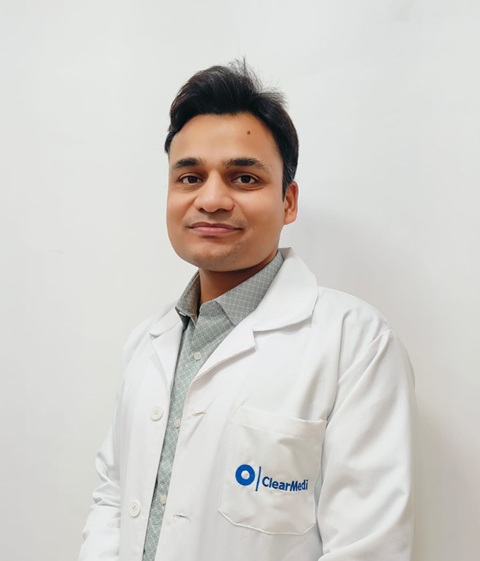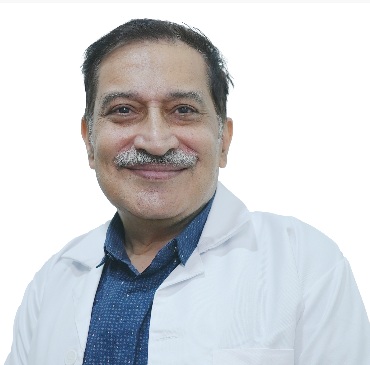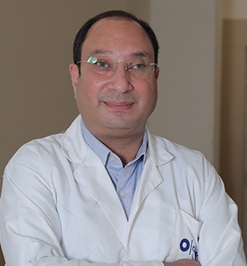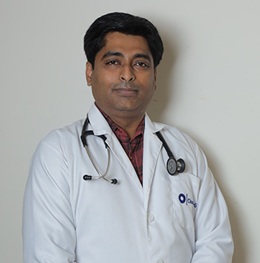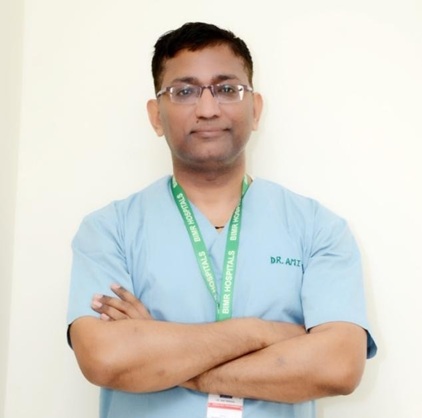Herniated Disc Surgery: Procedure, Purpose, Risks & Recovery

Treatment Duration
45 Minutes
------ To ------60 Minutes
Treatment Cost
₹ 3,00,000
------ To ------₹ 5,00,000

A person with a herniated disc may experience pain, affecting their daily activities. While you can relieve a herniated disc with pain relievers and physical therapy, you may need lumbar disc surgery if the symptoms do not improve even after a few months. Lumbar disc surgery is done to fix a disc in the lower back.
| Procedure Name | Lumbar Disc Surgery |
| Alternative Name | Disectomy |
| Conditions Treated |
Severe pain, Trouble in standing or walking, Numbness, Spasm, Sciatica, Decreased reflexes in the knee or ankle |
| Benefits of Surgery | Minimally Invasive, Faster Recovery, Spinal mobility is conserved, Less bleeding during sugery |
| Treated By | Neurosurgeon and Orthopaedic Surgeon |
You can check Herniated Disc Surgery Cost here.
Anatomy and Physiology
- Your lumbar spine consists of 5 bones known as vertebrae, located in the lower back.
- Vertebrae protect the spinal cord (runs through the spinal column) from injury.
- Cushions between the vertebrae, called discs, provide cushioning and support.
- Sometimes, the outer wall of these discs weakens or dries out with injury or age. This leads to bulging the soft, inner part of the disc, called a bulging or herniated disc.
- This bulging disc presses on the spinal cord, causing pain and tingling in the body.
Expert Doctors (10)
NABH Accredited Hospitals (10)


Why is Lumbar Disc Surgery Done?
You may need lumbar disc surgery if you experience the following symptoms:
- Severe pain that restricts you in your daily activities
- Trouble in standing or walking
- Numbness or weakness
- Spasm of the back muscles
- Sciatica (pain that starts near the back and travel to the calf or into the foot)
- Decreased reflexes in the knee or ankle
- Unable to control your bladder
The causes of a herniated lumbar disc include:
- Changes in the structure of the normal disc
- Ageing
- Severe injury
- Lifting heavy objects
- Twisting of the spine
How is Lumbar Disc Surgery performed?
A few different types of lumbar disc surgery can help you relieve pain.
Discectomy: In this procedure, the surgeon removes your damaged disc to relieve pressure on the nerves. Discectomy can be performed in a couple of ways:- An open discectomy is done by making an incision in your back.
- Microdiscectomy is done through a smaller cut in the back around 1.5 cm. The surgeon inserts a thin tube with a camera at the end into the back to remove the damaged disc.
Lumbar Laminotomy: In this procedure, the surgeon removes a small piece of the bone (the lamina) from the vertebrae. Removing a part or whole of the lamina helps the surgeon reach your herniated disc and remove it to relieve pressure on your nerves.
Spinal Fusion: After performing a discectomy or laminotomy, the surgeon may fuse the two vertebrae on both sides of the disc to make the spine more stable.
Artificial Disc Surgery: It is not a common procedure for lumbar disc repair as it works only on a few discs in the lower back. In this procedure, the surgeon replaces the damaged disc with an artificial disc made of polymer or metal to stabilise the spine.
Please note that the procedure selection is based on your medical condition and your surgeon’s opinion. However, a lumbar discectomy is one of the most preferred treatments for a herniated lumbar disc. The procedure of the surgery is as follows:
- The surgeon will make a small incision on your back at the level of the damaged disc.
- He/she will use a special type of X-ray to ensure the correct location.
- The surgeon will then insert a wire in the intervertebral space, followed by a slightly larger tube over the wire. He/she will then insert a second, larger tube over the previous one to push apart the tissue down to the vertebrae.
- He/she will then remove all the tubes except the largest one to insert special tools through this tube, including a light and a camera.
- Using these small tools, the surgeon will remove the damaged disc and do the other repairs.
- After removing the affected disc, he/she will remove the tools and the tube.
- The surgeon will close the incision with stitches and place a small bandage on the wound.
What can you expect before and on the day of the surgery?
Before the surgery
- The doctor will advise you for a pre-anaesthetic checkup to evaluate if you are allergic to any particular anaesthesia.
- He/she will ask you about your medical history and conduct imaging tests of your spine, such as an MRI.
- Once the PAC results arrive and you receive clearance for the surgery, he/she will appoint a date for the procedure.
- Your doctor will ask you not to eat or drink after midnight the night before the surgery.
- He/she will then briefly explain to you the surgical procedure, hospital stay, estimated cost, and insurance formalities.
What Can You Expect on the Day of the Surgery?
- On the day of the surgery, you will be asked to sign the consent formalities.
- The staff will ask you to change into a hospital gown and remove all pieces of jewellery and non-permanent dentures.
- Someone from the medical team will record your last meal and give you medicine with a sip of water.
- After your vitals, including heartbeat, breathing, and blood pressure, are checked, the team will shift you to the OT room.
What Can You Expect During the Surgery?
- Once in the OT, you will be made to lie on your back on the operating table.
- The medical team will start an intravenous (IV) line in your arms for fluids and medicines.
- Next, you will receive local anaesthesia so that you won’t feel any pain or general anaesthesia to let you sleep throughout the procedure.
- You will be rolled onto your abdomen, and the surgical site will be cleaned by an antiseptic solution.
- The team will monitor your vitals throughout the surgery.
- The surgeon will then make an incision in your back and perform the surgery.
- After the procedure, he/she will close the incision with stitches and put a bandage on the wound.
What Can You Expect After the Surgery?
Recovery in Hospital
- After the surgery, the team will shift you to the recovery room to monitor your vitals and the effect of anaesthesia.
- Your healthcare provider will prescribe medication to relieve pain.
- You probably need to stay in the hospital for a couple of hours after the surgery, after which you can go home the same day.
- Your doctor will give you instructions about home care and follow up.
Recovery at Home
- At home, you will have to limit bending and lifting.
- You may also need physical therapy after the surgery to strengthen your back.
- The surgeon will advise that you wear a back brace for some time after the procedure.
- You can go back to work within a week or two. However, if your job requires lifting heavy objects, your doctor will ask you to wait for six to eight weeks before resuming work.
First Follow-Up Appointment
- Your doctor will appoint the first follow up 2 to 3 weeks after the surgery. During the visit, he/she will remove the sutures and examine your recovery. The doctor will also provide further follow-up instructions.
When to Consult a Doctor?
Call your healthcare professional if you experience the following:
- Fever above 101.5℉
- Rash or itching at the incision
- Weakness, numbness, or tingling in the arms or legs
- Unrelieved nausea or vomiting
- Dizziness, confusion, and excessive sleepiness
- Swelling, redness, or drainage from the incision
Risks of Delaying Lumbar Disc Surgery
If left untreated, a herniated lumbar disc can result in the following:
- Severe nerve damage
- Acute pain transitioning into chronic pain
- Nerve pain in legs or arms
- Loss of control over bowel movements
More Treatment options
Last Updated on: 14 November 2022
Author
HexaHealth Care Team
HexaHealth Care Team brings you medical content covering many important conditions, procedures falling under different medical specialities. The content published is thoroughly reviewed by our panel of qualified doctors for its accuracy and relevance.



